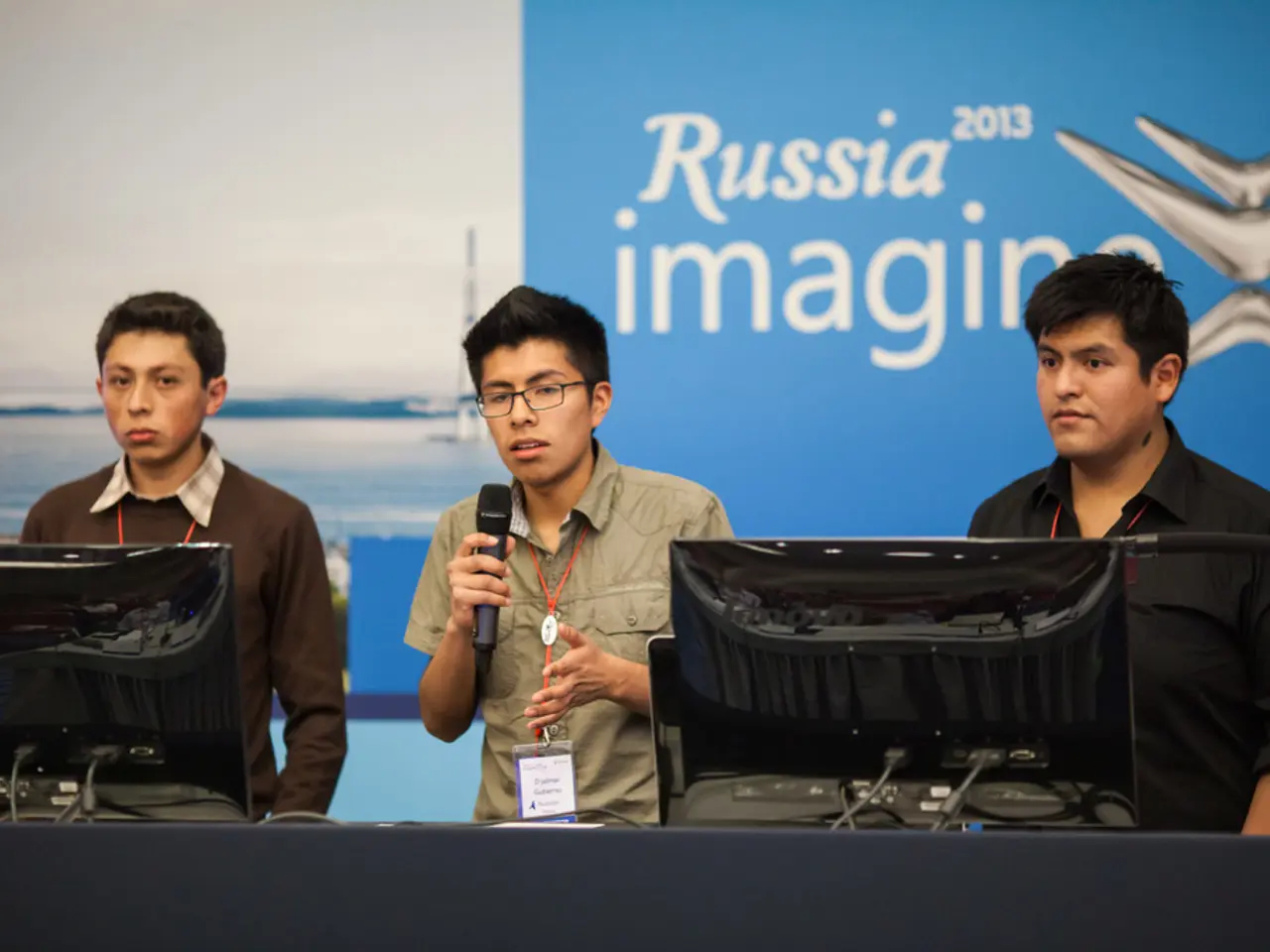Why aren't groundbreaking discoveries being made, given the availability of funds and innovative concepts among scientists?
In the heart of the Kremlin, President Vladimir Putin recently hosted Igor Shuvalov, the chairman of the state development corporation "VEB.RF." The meeting marked a significant moment as VEB.RF outlined its focus on groundbreaking technological projects aimed at propelling Russia towards technological leadership.
The strategic shift from mere import substitution to fostering genuine technological breakthroughs is at the forefront of VEB.RF's agenda. This ambitious approach is backed by knowledge and financial instruments, as the corporation seeks to reduce foreign dependency and stimulate domestic innovation.
One of the key initiatives involves the development of 5G network base stations, serving as a prime example of successful import substitution projects aligned with the technological leadership agenda. Other areas of focus include photonics, artificial intelligence, advanced materials, bioengineering, and medical technologies. These sectors reflect Russia’s long-term development goals and ambitions for autonomy from foreign suppliers.
Financial and organisational support for these projects is multifaceted. VEB.RF coordinates its efforts with institutions such as the Russian Fund for Industrial Development, Skolkovo, Skoltech, and others, under the oversight of national projects councils. This collaboration involves grants, investment capital participation, and debt financing.
VEB.RF's endeavours extend beyond these core areas, with the corporation investing in thousands of projects aimed at domestic production. These projects include gearboxes, automobile components, and trains. Igor Shuvalov, the chairman of VEB.RF, has promised to consider promising breakthrough projects and fulfill this task.
The corporation's business for the first half of the year stands at a substantial 7.5 trillion rubles. Notably, VEB has replaced imported equipment for 5G stations, and these stations are now being produced in Shuya.
President Putin has expressed his support for this approach, emphasising the need for Russia's own developments. He also agrees with the potential for technological leadership in unmanned aviation, a sector that Igor Shuvalov believes offers Russia a unique opportunity to become a world leader.
However, concerns remain. President Putin has shown interest in addressing the water situation in the Donetsk People's Republic (DNR), demanding a report on the matter. The current portfolio of VEB.RF represents approximately 2.5% of Russia's GDP, indicating the significant role it plays in the nation's economic development.
In summary, VEB.RF's breakthrough projects are centred around state-backed development and commercialization of advanced technologies linked to import substitution. The goal is to build domestic capacity, particularly in critical sectors like telecommunications (5G) and high-tech industrial solutions. As Russia continues to navigate its technological future, the role of VEB.RF in spearheading these efforts cannot be overstated.
Technology and finance are integral components of VEB.RF's strategic initiatives, as they provide the necessary resources for groundbreaking technological projects, such as the development of 5G network base stations. The corporation's endeavors also extend to sectors like photonics, artificial intelligence, advanced materials, bioengineering, and medical technologies, which align with Russia’s long-term development goals.
President Putin's support for these projects underscores the importance of reducing foreign dependency and stimulating domestic innovation, with the ultimate goal being technological leadership for Russia.




